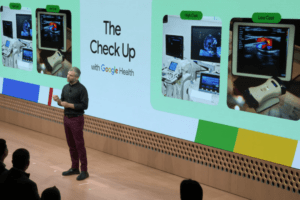Data science, once an arcane realm reserved for PhDs and statisticians, is undergoing a democratizing revolution. Enter Automated Machine Learning (AutoML), a game-changer that’s putting the power of data analysis into the hands of citizen data scientists, individuals with basic technical skills and a thirst for data-driven insights.
From Black Box to Citizen Sandbox: How AutoML Leverages Automation
Traditional machine learning involves complex tasks like data wrangling, feature engineering, model selection, and hyperparameter tuning. These steps often require specialized knowledge and computational resources, becoming a significant barrier for aspiring data scientists.
AutoML simplifies this process by automating:
- Data Preprocessing: Cleans, transforms, and prepares data for analysis.
- Feature Engineering: Creates new features that enhance model performance.
- Model Selection: Chooses the best algorithm for the specific problem.
- Hyperparameter Tuning: Optimizes model parameters for accuracy and efficiency.
Unlocking Hidden Potential: Opportunities for Citizen Data Scientists

AutoML empowers individuals across diverse fields to:
- Gain Deeper Business Insights: Analyze sales data, predict customer behavior, and optimize marketing campaigns without needing a data science degree.
- Improve Operational Efficiency: Identify production bottlenecks, predict equipment failures, and streamline processes in manufacturing and logistics.
- Fuel Innovation: Drive product development, personalize user experiences, and discover hidden patterns in data in fields like healthcare, finance, and education.
- Democratize Data-Driven Decision Making: Enable informed decision-making at all levels within organizations, empowering teams and individuals to leverage data insights.
Beyond Automation: The Human Touch Remains Essential
While AutoML automates many tasks, human expertise remains crucial for:
- Problem Definition and Data Collection: Identifying the right questions to ask and ensuring data quality are vital for valid outcomes.
- Model Interpretation and Explainability: Understanding how the model arrives at its predictions is essential for building trust and making informed decisions.
- Ethical Considerations and Bias Mitigation: Identifying and addressing potential biases in data and algorithms is critical for responsible data science practice.
- Communication and Collaboration: Translating data insights into actionable recommendations and effectively communicating results to stakeholders requires strong communication and collaboration skills.
Embracing the Future: Building a Data-Empowered World
As AutoML matures and becomes more accessible, we can expect:
- Widespread adoption across industries and organizations, regardless of size or technical expertise.
- Development of even more user-friendly interfaces and tools, making data analysis accessible to everyone.
- Continued focus on explainability and ethical considerations, fostering trust and responsible data science practices.
The rise of the citizen data scientist powered by AutoML presents a transformative opportunity. By democratizing data analysis and fostering data-driven decision making at all levels, we can unlock new possibilities for innovation, optimize processes, and build a more data-empowered future for all.
















Add Comment